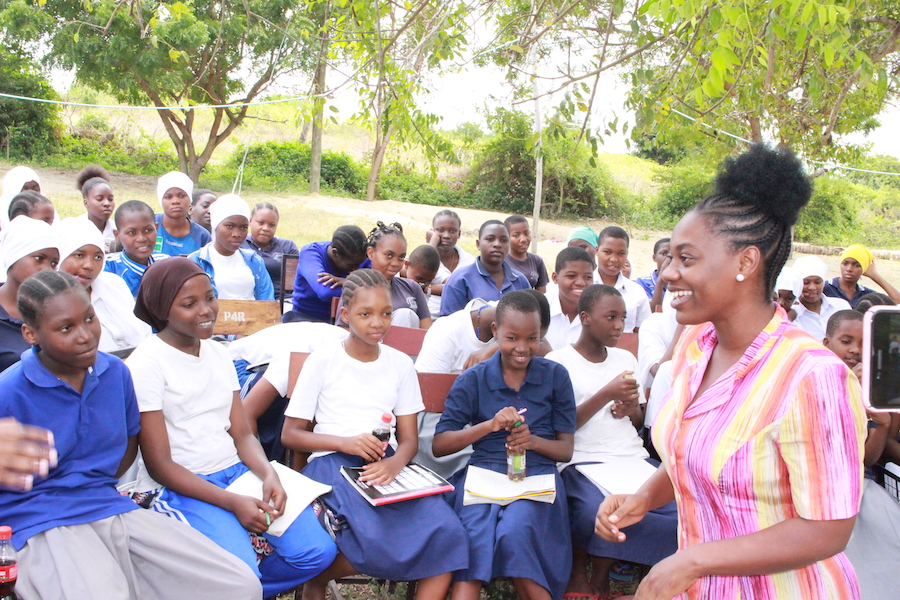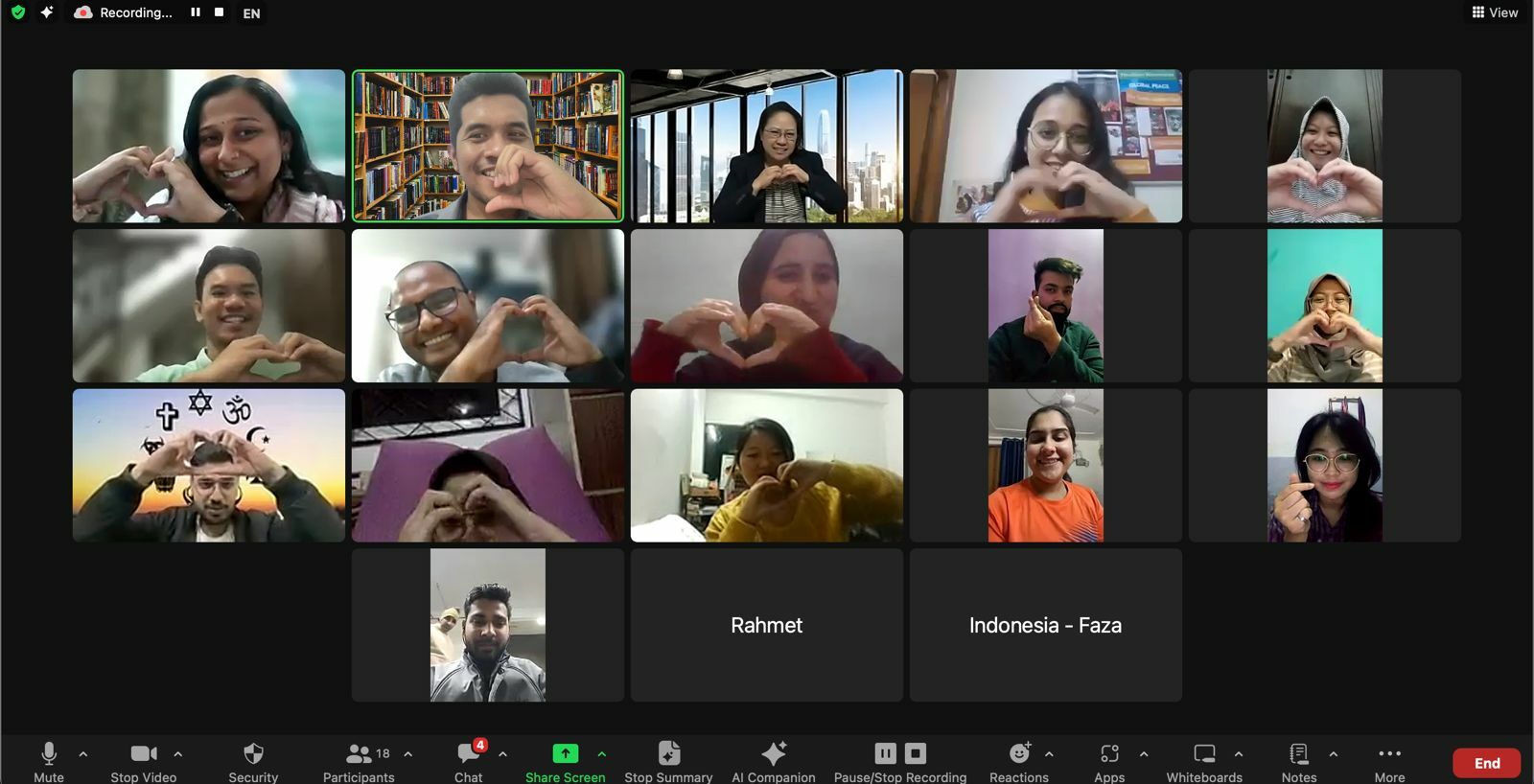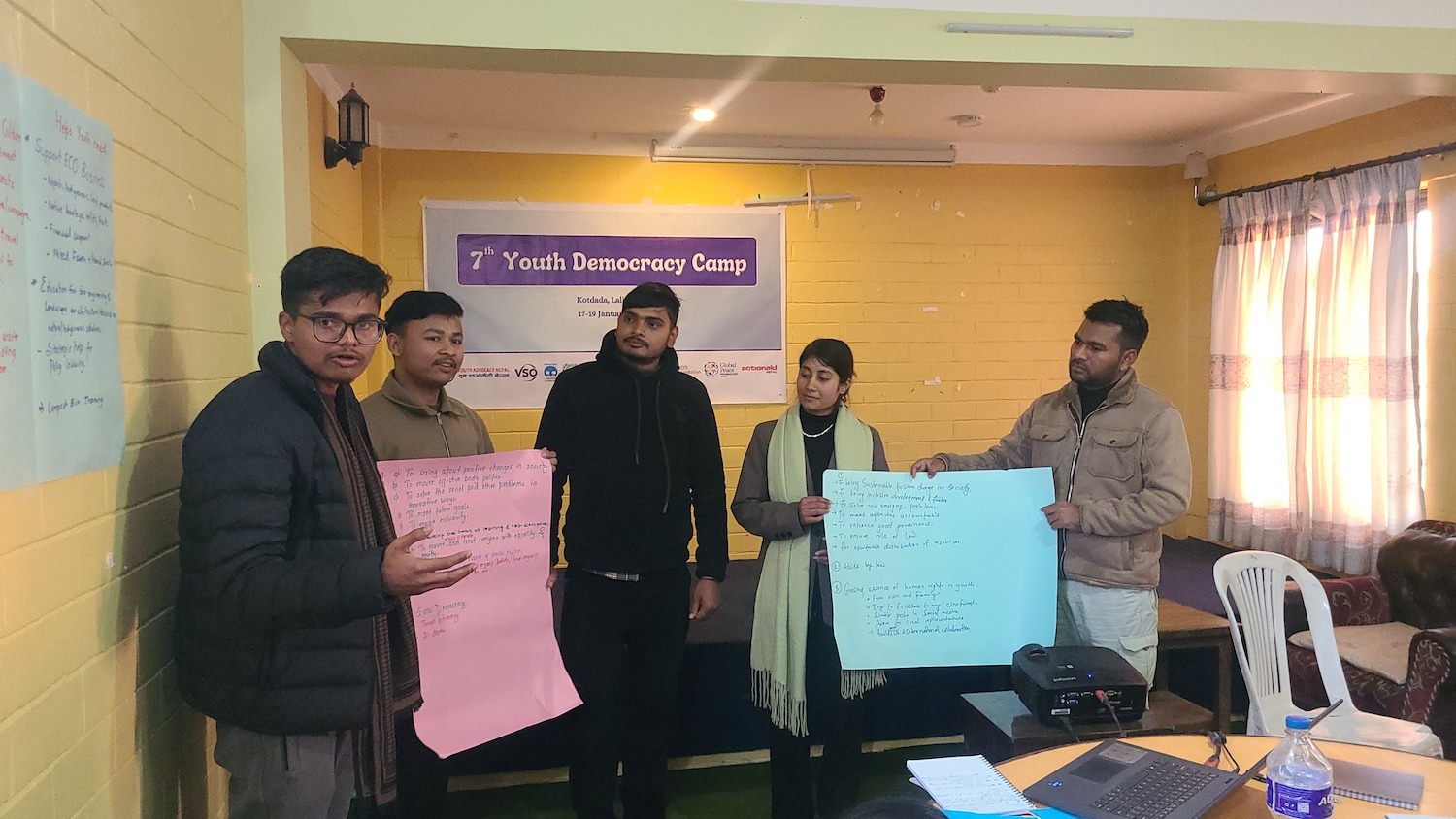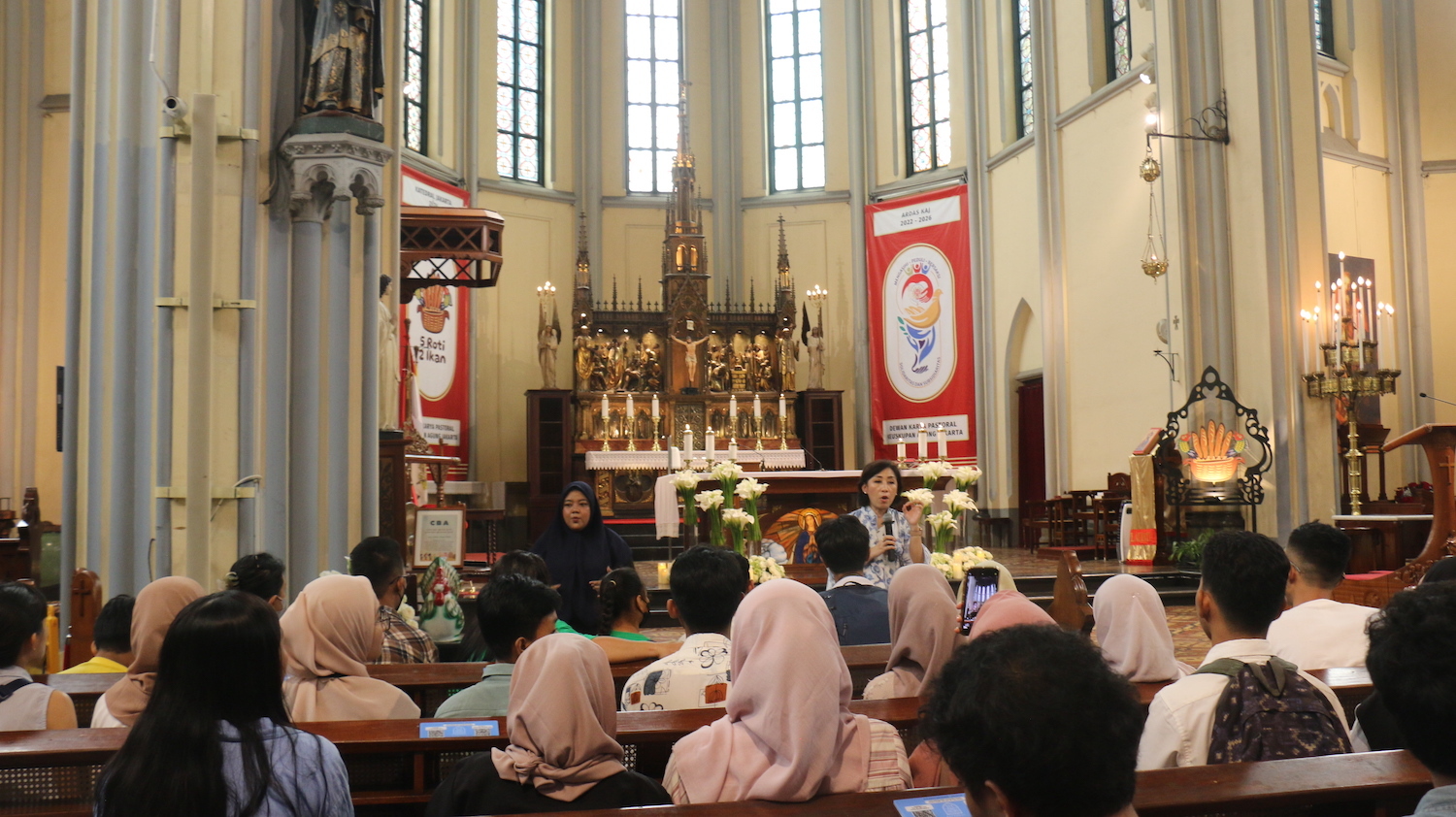Global Peace Foundation (GPF) Tanzania’s ongoing project for the Prevention of Violent Extremism at Kingani secondary school strives to empower students through training in entrepreneur skills, peacebuilding, and moral leadership.
Identity-based conflict fueled by youth radicalization is a prevalent reality for many young people in Tanzania, who make up 60% of the population. That is why GPF Tanzania’s ongoing campaigns are an important countermeasure to reverse the trend through youth education, leadership training, and entrepreneurship programs.
In a recent workshop, the ongoing project focused on “Moral Leadership and Self-awareness” training for young girls to dream big and aspire to become problem solvers and creative innovators that positively transform their society.

Tanzanian students at a GPF Moral and Innovative workshop
GPF Tanzania representative Martha Nghambi led the training workshop to give the students a clear understanding of their responsibility, strengths, weaknesses, thoughts, and motivations. This training was an important opportunity for girls to better perceive their unique qualities and their impact on others. To encourage self-improvement, she engaged the girls in exercises to uplift their positive traits and acknowledge their weaknesses to improve upon them. Martha emphasized the importance of improving self-awareness to help the students relate to others and propel them to their goals. The girls shared their goals, including becoming teachers and doctors, and how they will achieve them based on what they learned from the self-awareness training. From this training, the students are able to utilize their unique qualities as moral leaders in the future.
Irene Ishengoma, GPF Women program coordinator, led a supplemental session on “Moral Leadership:” leadership aimed at solving challenges through innovation and creativity for the greater good of society. Irene initiated roleplay scenarios with the students to demonstrate situations where moral and innovative leadership could impact their school and community.
Irene gave the students the principles needed for moral leadership: putting others first, solving problems, listening before reacting, build teamwork, welcome feedback positively, and be trustworthy. By providing steps to becoming a moral leader, such as a focus on what is right for people involved in a community or organization, setting an example for others, and treating everyone with respect, students were able to obtain practical models and inspiration to become a positive changemaker in their families, school, and in their communities.
GPF Tanzania conducts ongoing programs for youth to develop moral and innovative leadership.



